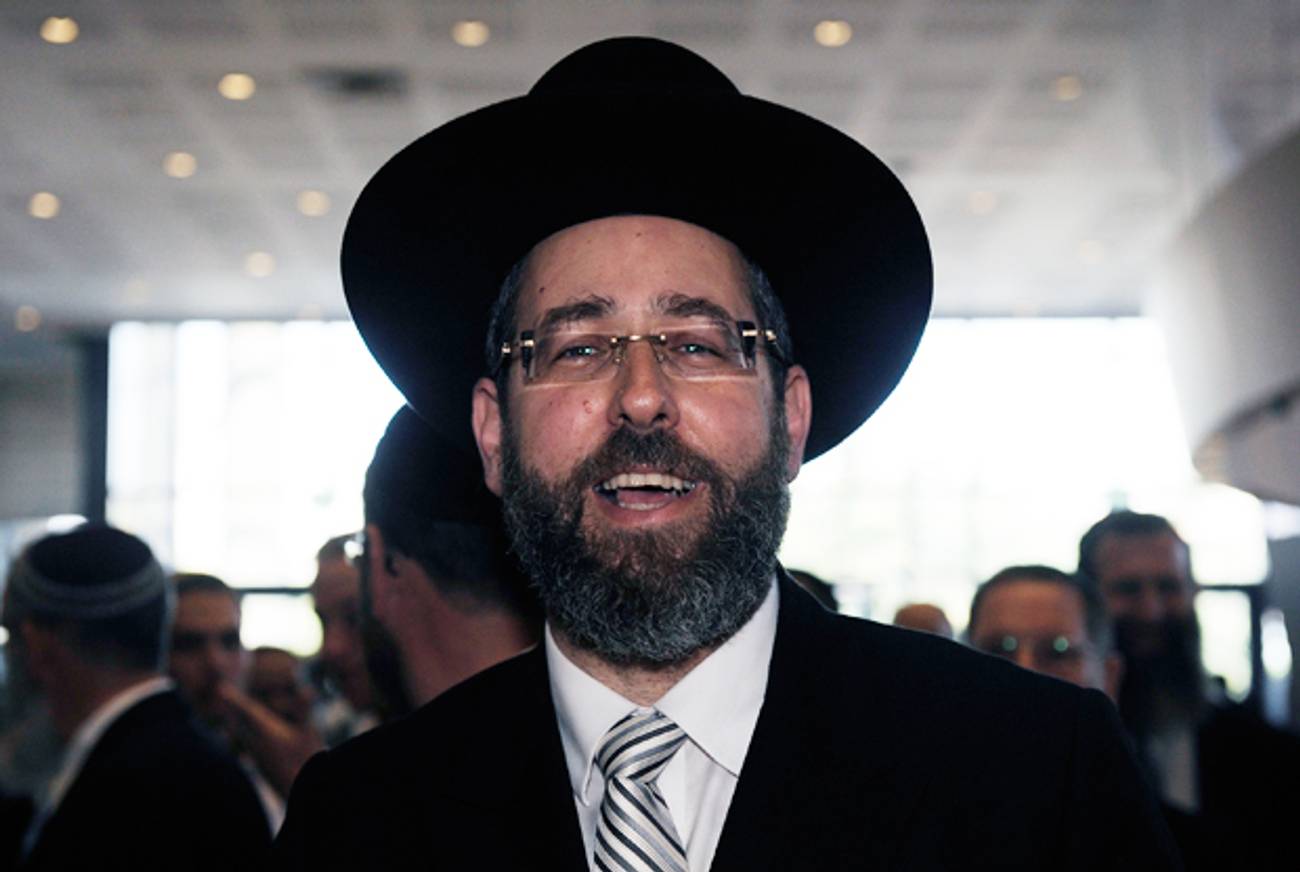Did Chief Rabbi Know He Used a Racial Slur?
A historian argues David Lau’s sin may be ignorance rather than prejudice




Earlier this week, newly instated Ashkenazi Chief Rabbi David Lau found himself under fire for allegedly making a racist remark. As Tal Kra-Oz reported, while speaking to a group of ultra-Orthodox youths, the rabbi admonished them not to watch basketball in public areas when they ought to be in yeshiva. Such conduct, he explained, undermines the Haredi argument that yeshiva students cannot serve in the IDF because they are too involved in studying Torah.
But in trying to make light of Israel’s basketball exploits, Lau seemingly stepped over the line. “What difference does it make,” he asked, “whether the kushim paid in Tel Aviv beat the kushim paid in Greece?” Kushim, in contemporary Israeli parlance, is a derogatory term for black people–some likened it to the N-word–and Lau was promptly pilloried for employing it.
But Lau doesn’t seem to understand what the fuss was about, telling Israeli radio yesterday, “they made a big deal out of a joke.” If it sounds like Lau doesn’t realize that what he said was wrong, it may be because he doesn’t. Yaacov Lozowick, the chief archivist of the State of Israel and former director of Yad Vashem, explains why on his personal blog:
If even the Chief Rabbi shamelessly uses the N-word in public, what better a demonstration of the profound rot of Israeli society!
But did he? The story of the word Kushi is actually more interesting than that.
First, it must be stressed, the word itself comes from the Bible, where it is used repeatedly, and so far as I know, exclusively, to describe people with black skin. The Bible doesn’t seem to have anything against black people, and even the story where Miriam apparently made some derogatory statement about her kushi sister-in-law seems mostly to indicate the opposite: Moses himself was married to the black woman, and right after making the statement God himself struck her with a horrible skin affliction and she was publicly thrown out of camp for seven days.
As recently as the early 1970s, kushi was the perfectly innocuous word in the Hebrew language for black. Then the Americans began fiddling with their own language, renouncing the word Negro and replacing it first with Black, then with Afro-American. Those parts of Israeli society which are closely attuned to things American decreed that the ancient Hebrew word must also be expunged, because of the awful cultural baggage of Jim Crow and segregation.
But of course, Israel didn’t have the awful cultural baggage of Jim Crow and segregation. For all its many warts and blemishes, Israel doesn’t have the same historical complexes and traumas as the Americans do, just as the French Russians and Japanese don’t have them. The way history works is that each group has its own story, its own radioactive themes, and its own indifference to the sensitivities of others. History makes a difference, but it makes a difference in different ways and different times and places.
…If one insists on attaching an ethnic slur to the word Kushi, it would probably be the Yiddish word Schwartze, which is indeed mildly derogatory, but in a belittling and condescending way, without any hatred attached.
In other words, Lau’s sin here may not be racism, but rather his complete disconnection from the broader cultural universe of most Israelis. To him, kushim is a biblical term. To most of his listeners, it’s a racial slur. Incidents like these—the regular result of a chief rabbinate operated by ultra-Orthodox individuals who lack any cultural commonality with those they are responsible to—were precisely what led many to champion Lau’s opponent, reformer Rabbi David Stav, in last month’s rabbinate elections.
Whether one agrees with Lozowick’s interpretation of Lau’s remark or not, all can second his hope that “someone…impress[es] upon the new Chief Rabbi that his words now carry greater weight than they did last week, and he’s got to be wise in choosing them.”
Related: Religious Revolution in Israel
Secrets From Israel’s Archives
Previous: Israel’s New Chief Rabbi in Hot Water Already
Israel Elects New Chief Rabbis
Yair Rosenberg is a senior writer at Tablet. Subscribe to his newsletter, listen to his music, and follow him on Twitter and Facebook.